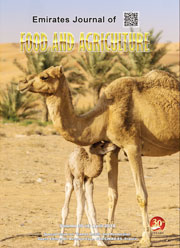Enhancement of thermal stability of soybean oil by blending with tea seed oil
DOI:
https://doi.org/10.9755/ejfa.2018.v30.i11.1862Abstract
Frying accelerates oil deterioration through several chemical reactions, particularly lipid oxidation. Soybean oil (SBO), the polyunsaturated fatty acid (PUFA) rich oil, is prone to thermal degradation. Nevertheless, tea seed oil (TSO), mainly consisting of monounsaturated fatty acids (MUFA), is quite stable. This work aimed to elucidate thermal stability of SBO as affected by TSO blending at varying volume ratios. After frying for several repeated cycles, SBO/TSO blends with the ratios of 70:30, 60:40 and 50:50 showed lower total oxidative degree than SBO alone. FTIR spectra suggested less cis C=C deformation of the SBO blended with TSO, and the 60:40 SBO/TSO blend contained the lowest secondary oxidation products. Along frying, less change in viscosity (color) was found for the 60:40 and 50:50 (60:40) SBO/TSO blends. Improved thermal stability of the blended oils was expected due to the decrease in PUFA and increase in phenolic content, and this study suggested that the 60:40 SBO/TSO blend showed the highest stability.










 .
. 